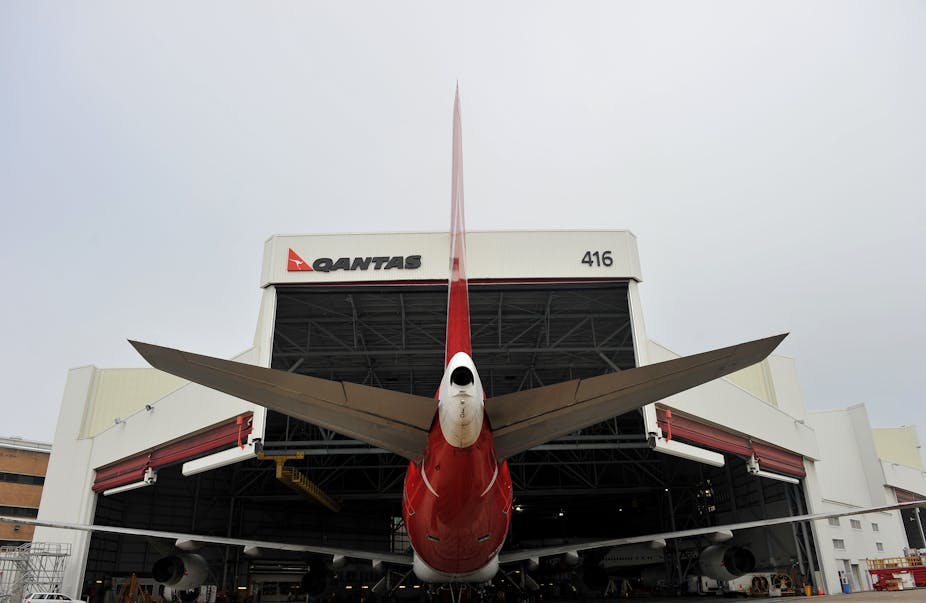Qantas has announced it is splitting its loss-making international business from domestic operations, as part of a five year turn-around plan announced last August.
The two companies will have separate management structures and chief executives. Alan Joyce will remain chief executive of the overall group. The move comes a day after 500 engineers were made redundant at Qantas’ Melbourne operations.
But Ian Douglas, Senior Lecturer, Aviation at the University of New South Wales warns against break-up speculation.
What impact will this decision have on the wider aviation industry?
I think almost none. The reason I think almost none is that structurally the business is set up that way anyway. The revenue management unit that looks after the domestic routes is not the same set of people who look after the international markets. The pricing policy and the customer base – none of that changes. All that happens is breaking out the consolidated reporting of the Qantas branded carrier.
Is this is the beginning of a process to break up the Qantas domestic and international businesses for possible sale?
I think they’re going down the path that Virgin did, by taking the international business into a separate non-listed company. But not a break up. A Qantas domestic business without the international network would have a tough time supporting the frequent flyer program and that’s where a lot of the value of the business sits at the moment. Qantas international without the domestic would be taking Qantas back to pre-1992 or 1995, where you can’t really operate an international carrier without a domestic arm in an environment like this.
I think that both of them have more value integrated in the group than either of them would have separately. Having said that, the change could only happen if they could get rid of the Qantas Sale Act which was was put in place before the students I’ve been teaching this year were born.
If they could get rid of that anachronistic bit of legislation maybe Qantas could a take a shareholder into the domestic business and use that as a source of capital in the group. But to me that makes little sense. Qantas would basically be saying “I’ll give away that bit of the business that makes money so I can hang onto the bit of the business that doesn’t”.
To me the split is almost an accounting exercise. There was discussion in the last annual report about the international business performing poorly compared with the domestic one. All this really does is give the shareholders and the market clarity around the reporting of those different parts of the business that are performing differently at this point in time
So are media headlines suggesting a Qantas break up wrong?
I think it’s a bit of an overreaction. If Woolworths said “we’re going to change the way we report the sales through petrol station stores and aggregate those or disaggregate those from the supermarket sales of products, it wouldn’t rate a mention. Invariably because Qantas is a high profile business, everybody has an opinion on it. The industry generally, it’s not just an Australian issue or a Qantas issue, everybody has an opinion. Everybody believes that they "own” the carrier. I think Senator Nick Xenophon was making statements about it this morning. The Commonwealth Bank at one stage absorbed the state bank, but no one is saying we should be unwinding that merger, or we should be re-privatising the Commonwealth Bank, or asking how come the Commonwealth Bank is not reporting its NSW revenue separately? You take it out of the Qantas context and put it into any other business or industry, and it becomes a really tiny story.
So this tells us something about the place a national carrier continues to have in the national psyche?
It really is an odd thing. If we asked someone what the national soap company of Turkey was, no one would know or care. It’s an industry where everyone gets emotional about it. It shows up a bit in the naming as well. Air India or British Airways or American Airlines, they’re so nationally identified. But this is 25-30 year-old history, when governments owned most of the world’s airlines. These days that thinking is way out of date – it’s just a another business.

